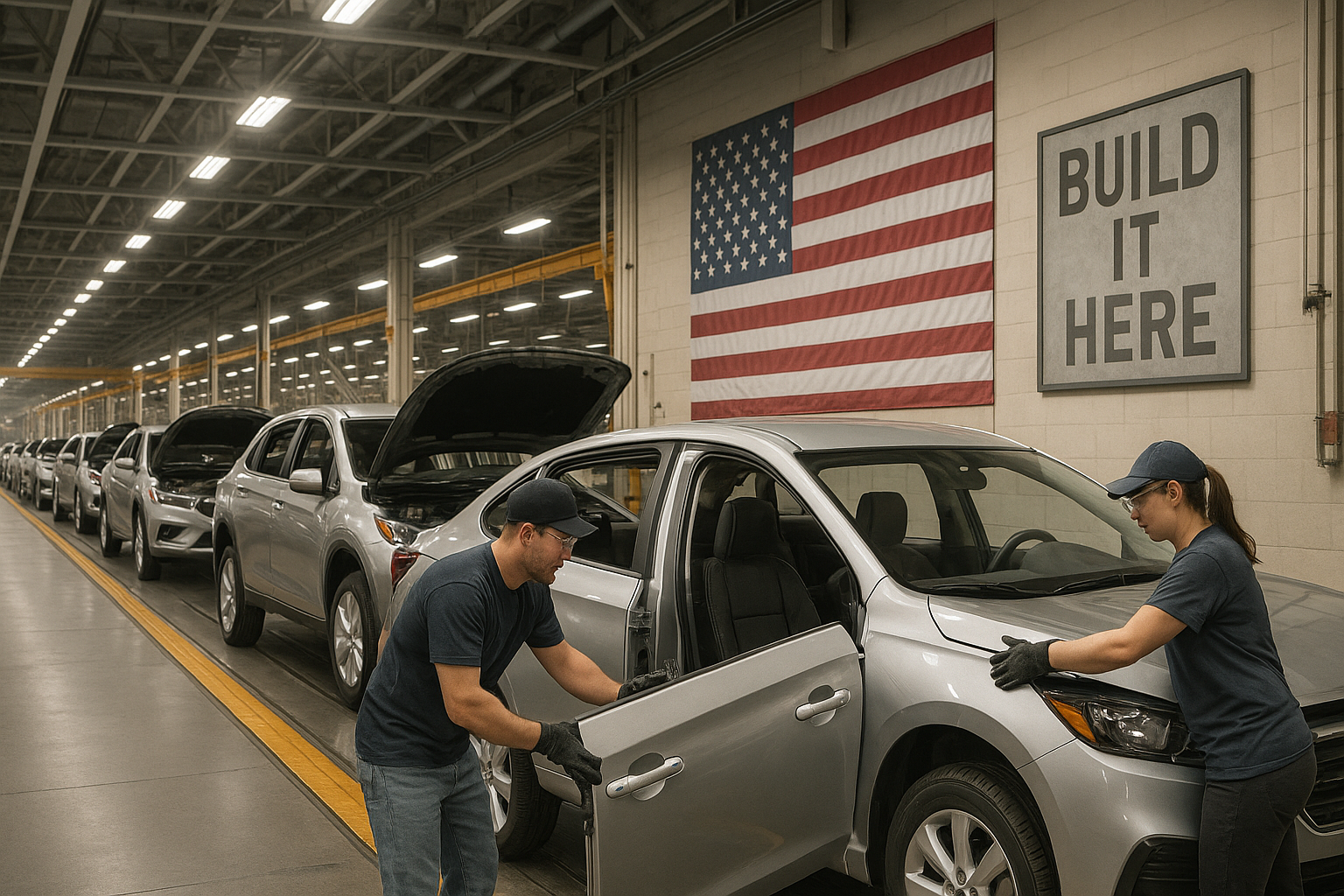Commerce Secretary Howard Lutnick has apparently discovered the magic solution to all of America's auto industry woes. His prescription? "Just build it in America."
I mean, why didn't anyone think of that before? Decades of complex global supply chain evolution solved with five simple words!
When the American Automotive Policy Council (that's GM, Ford, and Stellantis, for those keeping score at home) raised concerns about Trump's planned tariff arrangement with Japan potentially giving Japanese manufacturers a competitive edge, Lutnick responded with all the nuance of a sledgehammer.
"Oh my God, that's just so silly," he declared.
Ah, yes. The classic economic rebuttal we all learned in Econ 101: "that's silly." Professor Krugman would be proud.
Look, there's something almost refreshing about the straightforwardness here. No equivocation, no complex policy papers—just good old-fashioned "build it here or else" economics. It's economic nationalism distilled to its purest form.
"Come on, there's no tariff if you build it in America," Lutnick explained, as if revealing a secret loophole nobody had considered. "American manufacturers are going to do extremely well in America—as long as they build it in America. You build it in America, you're good."
The repetition has an almost hypnotic quality. Build it in America. Build it in America. If he says it enough times, perhaps global auto manufacturing economics will magically transform! It's giving very "there's no place like home" energy, except instead of ruby slippers, we're clicking together tariff policies.
Having covered trade policy for years, I've noticed this administration has a particular talent for reducing extraordinarily complex economic relationships to bumper sticker slogans. It's both their greatest political strength and policy weakness.
What's particularly fascinating is the apparent shock that American automakers might not be thrilled about policies potentially advantaging their Japanese competitors. It's like being surprised your cat isn't excited about your new dog. "But I thought you liked animals!"
The automakers' concerns aren't entirely without merit (though don't tell Lutnick I said that). If Japanese vehicles face lower tariffs than those from, say, South Korea or the EU, it creates competitive imbalances for American companies with global footprints.
These companies have spent billions—billions!—establishing manufacturing facilities and supply chains across multiple countries. The notion they can simply flip a switch and "build it all in America" overnight is... well, I was going to say naive, but let's go with "optimistic."
Modern auto manufacturing isn't simple. A single vehicle might contain parts from dozens of countries, assembled in multiple locations, before reaching the consumer. This didn't happen by accident; it happened because of economic incentives created by... previous trade policies.
(Funny how that works, isn't it?)
The underlying tension here reveals a fundamental question in trade policy that nobody seems eager to answer clearly: Who exactly are we trying to help? American companies as corporate entities? American workers specifically? Consumers who benefit from cheaper imported goods?
These questions lead to radically different policy prescriptions, but Lutnick's comments suggest a laser focus on domestic manufacturing jobs above all else.
Which, to be fair, is a coherent position. It's just one that conflicts with how global corporations actually operate in 2024.
The reality—and I've seen this firsthand while interviewing auto executives over the years—is that modern multinational corporations don't think in simplistic "domestic vs. foreign" terms anymore. They operate global businesses with global supply chains optimized for efficiency and profit. Period.
Then again, maybe I'm overthinking this. Perhaps we've entered a new era of economic policy where complex trade relationships are reduced to Twitter-friendly slogans and concerns dismissed as "just so silly."
If so, I eagerly await the Treasury Secretary's upcoming white paper: "Inflation? Just Stop Raising Prices!"
